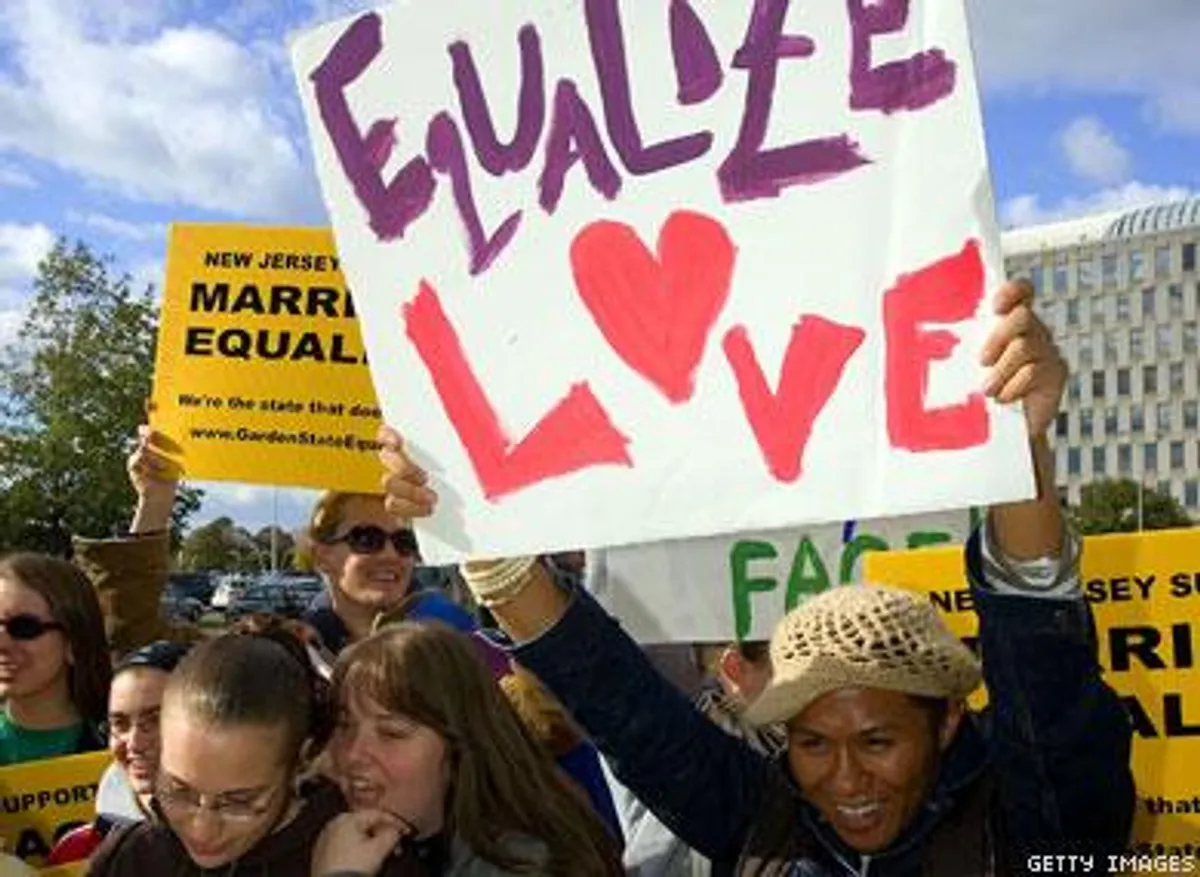World
N.J. Marriage Bill Advances, Christie Wants Referendum
N.J. Marriage Bill Advances, Christie Wants Referendum

By continuing to use our site, you agree to our Private Policy and Terms of Use.
N.J. Marriage Bill Advances, Christie Wants Referendum

A bill that would legalize same-sex marriage passed the New Jersey senate judiciary committee as expected Tuesday afternoon. The 8 to 4 vote cleared the way for the bill to come to the senate floor next month, although Governor Chris Christie renewed his vow to veto the legislation and urged lawmakers to "let the people of New Jersey decide" the issue in a referendum.
Democratic lawmakers introduced the bill two weeks ago with the expectation that it would pass both houses, in contrast with 2010, when the measure died after a 20-14 vote in the senate. Senate President Stephen Sweeney, who abstained from voting two years ago, has since changed his position and become a sponsor of the legislation. He told The Advocate he planned to discuss the legislation with Christie, who could choose to veto the bill or let it become law without his signature, after it passed the senate and general assembly.
However, Christie appeared to foreclose prospects for dialogue when, at the same time as the committee hearing, he announced during a town hall that he planned to veto the bill. The governor said he wanted lawmakers to put the issue before voters in a referendum. A Quinnipiac poll last week showed that a majority (52%) of New Jersey voters support marriage equality for the first time.
"I think this is not an issue that should rest solely in my hands, or the hands of the Senate President or the Speaker or the other 118 members of the Legislature," said the governor, according to the Star-Ledger. "Let's let the people of New Jersey decide what is right for the state."
The remarks represented a departure from Christie's more open tone of recent weeks. As recently as Monday, a Christie spokesman told The Advocate that the governor planned to allow the legislative process to unfold, and then review it in accordance with a 45-day review period, "just as he would any other piece of legislation."
Senate President Sweeney responded with a resounding no when a speaker informed the hearing participants of the governor's announcement. His reply appeared to escalate the mounting confrontation between Democratic lawmakers and the Republican governor.
"Civil rights is not to be placed on the ballot," said Sweeney after a speaker interrupted to share the governor's announcement. "It's to be voted on by the people in this house."
Senator Ray Lezniak, a bill sponsor, directly addressed Christie in comments before voting to advance the bill.
"It's not like sports betting," he said. "It's a civil right that's guaranteed in the constitution."
Senator Sweeney confirmed that enough votes exist to pass the bill when it comes to the floor as anticipated on February 13. However, legislative leaders are still working to muster the two-thirds majorities required to override the veto, a task that the senate president called an "enormous lift" in his chamber. Only one Republican senator publicly supports the bill, and the veto threat from Christie holds the potential to make other members of his party wary about crossing him.
The committee approved the bill after three hours of testimony in which dozens of supporters and opponents of the bill delivered three-minute remarks. Marriage equality advocates focused on the inadequacies of the current civil unions law, particularly in vulnerable situations such as hospital visitation or the death of a child. Opponents claimed that even with broad religious exemptions protecting their right not to solemnize same-sex weddings or provide facilities for their celebration, the bill would still threaten their religious freedom.
Daniel Weiss, lead plaintiff in a marriage equality lawsuit filed in New Jersey Superior Court in June, spoke of being summoned to the hospital in New York City after his spouse John Grant was hit by a car and sustained life-threatening injuries. Weiss said the brain surgeon asked, "What is a civil union?"
"The fiscally conservative, registered Republican in me is appalled" by the paperwork surrounding the separate status of civil unions, he testified.
Moshe Bressler, an Orthodox Jew opposed to marriage equality, testified in a panel with the executive director of the New Jersey Catholic Conference. "The road to hell is paved with religious exemptions," he said. Bressler attempted to link marriage equality to a study that found half of gay couples in San Francisco engage in "open relationships" in 2010. "Please kill this demon before it demonizes millions of New Jerseyans," he said.
Senator Weinberg, also Jewish, took issue with the "pejorative insinuations" about same-sex relationships from "the good rabbis."
"Nothing in this bill requires the religious recognition of marriage," she said in her opening remarks. "This is one of those moments that cannot be completely explained. This is one of those moments that can only be articulated by the inaudible language of the heart."